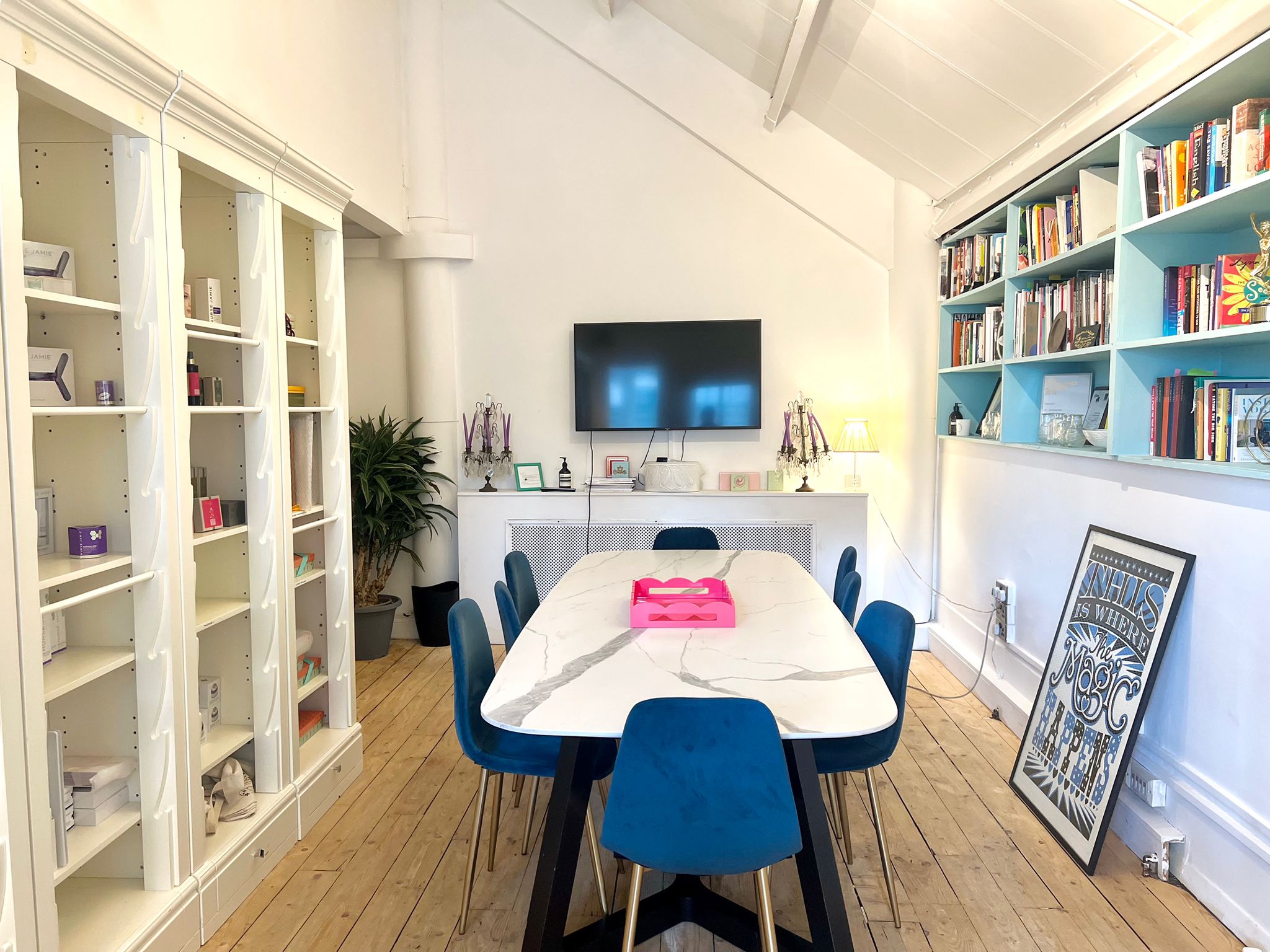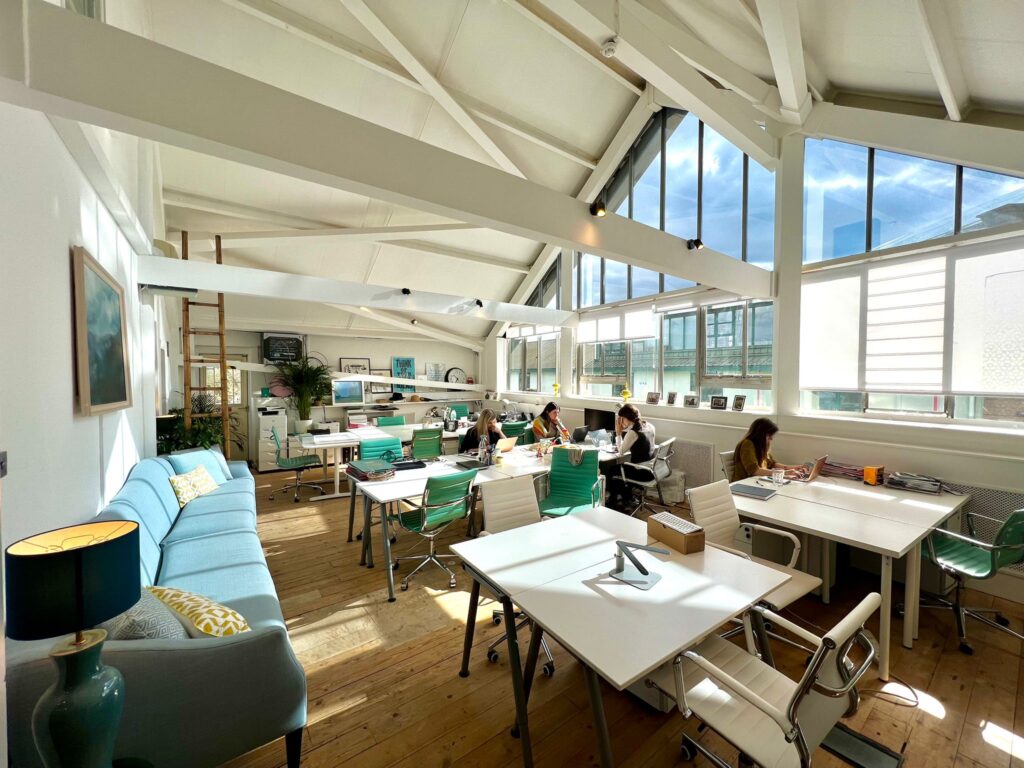Yes, we’re back at it again. The all-mighty technology. It’s allowed for things we couldn’t even imagine before – from avatars that mimic our movements to electric vehicles that make no noise.
But with the average person spending around 8.5 hours at work daily, it’s only natural for you to want to jump right into how technology can make this time easier and more fun. Because, let’s be real, as much as someone loves their job, nobody will stick to sorting emails manually when they know it can be done automatically. Some tasks are simply meant to be automated.
But there’s much more to technology than just automation when it comes to shaping the future of office operations. And we’re going to talk all about it in today’s article. So, let’s get to it!

It makes remote work possible
Yes, the pandemic was what pushed us into remote work. But what made it stick? What makes it possible for us to continue working from home in our pajamas? It’s technology. All the advanced collaboration and conferencing tools that it brought our way. Without it, we wouldn’t be able to attend online meetings. Nor be able to work on projects together with our team.
But before we talk about the different software, let’s not forget the part of technology that allows us to stay connected in the first place. The network infrastructure. The Wi-Fi connections and the cables that allow us to use the internet. For example, there’s this simple RJ45 pinout that you may not have heard about, but it is what makes sure your Ethernet cable works as it should.
So, every time you think about how awesome the advanced tools are, know that these smaller pieces are working pretty hard to keep them running. That said, let’s talk about all the tools that make remote work possible and what we can expect for this work model moving forward.
Better communication and collaboration
No matter what you do for a living, and regardless of whether remote work will become the norm for everyone, communicating with your coworkers will never go out of style. Even if you do more solo work and don’t need someone’s help, keeping the social in the remote alive is a good thing.
And here’s how technology helps you do this:
- Collaboration tools: We’ve all heard about Zoom, Microsoft Teams, and Slack. And with remote work becoming even more common, many of you have probably used them. It’s through these tools that technology is making remote work possible and a lot easier.
- Shared cloud storage: Well, through these tools as well. When you and your coworkers can access the most important files and their latest versions in one space, working remotely isn’t a problem at all. You can access, edit, and collaborate on these documents even if thousands of miles away from each other. Yes, it’s pretty convenient.
You see what technology did there? It has made it possible for workers to balance their work and personal lives. This, in turn, has led to 98% of workers wanting to work from home at least some of the time and 93% of employers planning on continuing to conduct job interviews remotely.
But all of this isn’t only because technology has encouraged remote work. It’s also because it has made us more productive and efficient than ever. It has made every office operation easier.
How automation makes office operations easier
You’ve probably had the thought run through your mind about how awesome it would be if someone just showed up and took those time-consuming tasks off your plate. At least once in your life. Well, your prayers have been heard. Automation tools will do exactly that for you.
If you, for example, needed an hour to go through all your emails before, with email automation software, you’ll need no more than a few minutes. If you had to send meeting reminders every two hours, with scheduling tools, you’d no longer need to send them manually.
The same goes for every other repetitive task that gives you headaches.
The best thing about this is that you can focus on the more important work. You don’t have to worry about prioritizing, as the less-important work will be taken care of. You don’t have to worry about whether you’ll have to work after hours, as you’ll have just enough time for your tasks.
But automation doesn’t just make it faster. It also makes it more accurate. This is important because the issue with repetitive tasks isn’t that they’re time-consuming. It’s what makes them time-consuming, and that’s that they require attention to detail. You can spend hours on them, trying to be as careful as possible, but the risk of making a mistake will always exist.
Automation prevents these mistakes from happening. It does each task precisely. It stays consistent throughout the whole process. Workers can feel free to rely on it every single time.
More personalized office space with IoT devices
Just because remote work is common doesn’t mean that workers will stop going to the office once and for all. It simply means that more work models will be introduced. Every business can decide how often they want their employees to come to the physical office, and for those who do go to the office, technology will make sure that their office space is more personalized than ever.
For example:
- Smart desks: Remember how, in school, our professors would punish us by making us stand during class if we weren’t attentive? It turns out that what we considered a punishment back then is now a blessing. Smart desks let us choose how we want to work – be it sitting or standing. We can do this by adjusting their height by pushing a button.
- Private meeting rooms: Is there an employee who doesn’t like privacy? Because of this, many of today’s offices come with private meeting rooms that aren’t only separated by a door but are actually soundproof, allowing workers to attend meetings, give presentations, or simply focus on their tasks without being bothered by background noise.
- Intelligent lighting systems: “The last one to leave the office has to turn off the lights” will no longer be a thing in the office of the future. Intelligent lighting systems are designed to turn on and off based on the time of day or whether the room is occupied.
- Device lifespan management: Office managers will no longer have to worry about whether there’s something wrong with a device. Because if there is, IoT sensors will alert them on time so that they can replace it before it breaks down completely.
I can go on and on about how technology is transforming offices. There are so many devices that make employees feel cozier at work. But because an employer invests in their coziness, they will end up with more productive employees. It turns out that 60% of employees feel like the cost of going to the office far outweighs the benefits. By implementing smart technology into their office spaces, employers bring back these benefits, giving employees a reason to come to the office.
Healthier employees
Not only more productive but healthier as well? That’s right. There are now so many different applications that support their well-being and help workers balance their work and personal lives.
One such app that companies are now adopting is a wellness app that can track their employees’ physical activity, mental health, and even sleep patterns. There are also apps that focus completely on the employees’ mental health, allowing them to attend virtual therapy sessions.
But even if they’re not directly focused on their health, tools such as flexible scheduling and time management tools are still useful in helping employees manage their workload better and reduce stress. This is because these tools give you more control over your time. They allow you to stay productive without sacrificing your health, with the end goal being avoiding burnout.
A few final words on the office of the future

You can try comparing an office from 10 years ago with today’s office to see how much it has changed. Not only physically but also in the way businesses conduct office operations. Everything is more flexible. More efficient. More employee-focused. And we owe it to none other than technology. From collaboration and time-management tools to smart desks that allow us to work while standing, it has completely changed the way we work.
Author Bio
Makedonka Micajkova is a freelance content writer and translator, always bringing creativity and originality to the table. Being multilingual with professional proficiency in English, German, and Spanish, it’s needless to say that languages are her biggest passion in life. She’s also a skilled communicator, as a result of her three years of experience as a sales representative. You can find her on LinkedIn.
